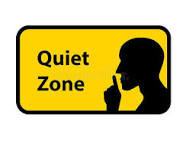I would love to be wrong, but filmed entertainment seems to be facing its own equivalent of the robotic assembly line.
A little-reported but hugely significant white flag of surrender surfaced a few weeks ago when the producer and actor Tyler Perry suddenly canceled a planned expansion of his Atlanta studios. A dozen new sound stages were originally projected, but that was before he saw what he considered a “mind blowing” demonstration.
Perry changed his mind after he viewed a collection of short videos produced by an A.I. program called Sora. On just verbal prompts to Sora, the name of an image generator from Open AI, a fabricated scene emerged as an instant “video” that was difficult to distinguish from a sequence that a Hollywood production company might take days to set up. The crane shots in some of these fake videos are stunning. The characters look like they have been groomed for their parts. Shadows are mostly authentic. And the live action from people and animals look mostly “real.” As the Washington Post noted in an excellent must-see article, the images and actions are “shockingly realistic.” The article and its examples are best seen on a computer screen. Here’s a sample of one of the videos with its text prompt that is cited by the Post.
[Verbal Prompt: A cat waking up its sleeping owner demanding breakfast. The owner tries to ignore the cat, but the cat tries new tactics and finally the owner pulls out a secret stash of treats from under the pillow to hold the cat off a little longer. (OpenAI)]
We expect that most institutions will evolve incrementally: slow enough to allow for adjustments to new realities. That may not be the case here. Every trade in the film and video industry must be asking how they will fit into a world of narrative storytelling when anyone without experience with computer generated images can “create” stunning video effects.
To be sure, things aren’t perfect in this early generation of Sora. Look at a sample of an invented scene from a 1930s movie, also cited by The Post. It looks great, but Sora doesn’t know how to light a cigarette:
[Verbal Prompt: A person in a 1930s Hollywood movie sits at a desk. They pick up a cigarette case, remove a cigarette and light it with a lighter. The person takes a long drag from the cigarette and sits back in their chair. Golden age of Hollywood, black and white film style. (OpenAI)]
Hollywood is not alone in confronting technological advancement, but the ease of use of this technology makes it an existential threat to the film world as we know it. Producers and various content providers will love this tool. But it cannot be anything but a blow to artists and trades that usually make traditional film or video projects. No wonder actors were so concerned about achieving a new contract that would prohibit the use of their likenesses without their permission. I would love to be wrong, but the future of “filmed” entertainment seems to be facing its own equivalent of the robot revolution in the production of automobiles.
A colleague who knows about these things notes that crews have been dealing with Computer Generated sets and effects for years. As actor can now appear to be walking down a street in Prague while passing in front of a green screen in Burbank. And many are working these days. There’s also the example of recent films like Poor Things (2023), with actual Victorian sets on sound stages and the inventive use of crafts that go with a period piece. My colleague also wonders if many A.I. scenes aren’t essentially rip-offs of other location videos, slightly modified to seem more original than they are. Newer generations of this software should help clarify the charge of “mere copying”.
To be sure, the future appears bright at least for copyright lawyers. Then, too, actors in dense roles driven by dialogue construct screen personas carefully. Performances come from assumed motivations and hard-to-fake nuances. Can a fully integrated performance like Emma Stone’s in Poor Things really be put together from just from verbal directions? Even so, an upheaval is bound to happen as seemingly recognizable persons are placed in novel settings and given words that they never muttered.
A.I. appears to be a new and fearsome thing facing the film industry, but it is even more of a threat to the culture as a whole if journalists and public figures face an endless tangle of anger and confusion over real and fabricated words and images.
![]()




